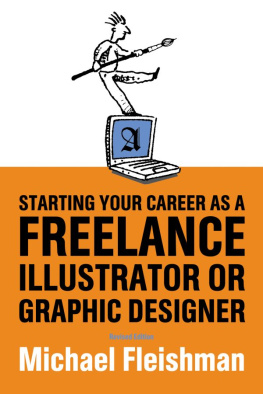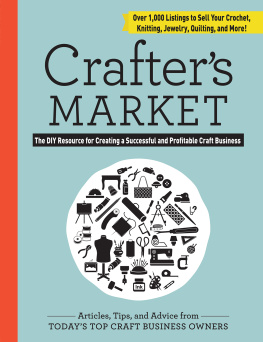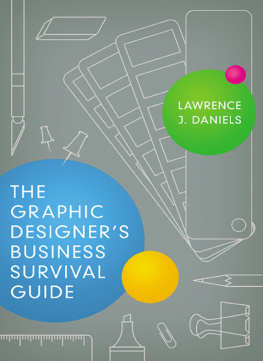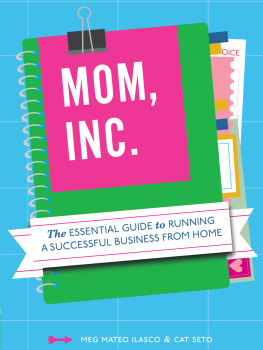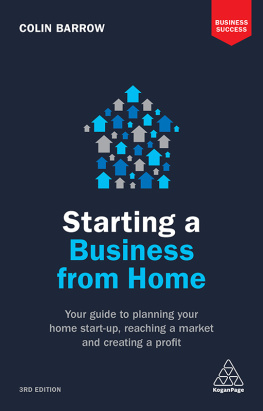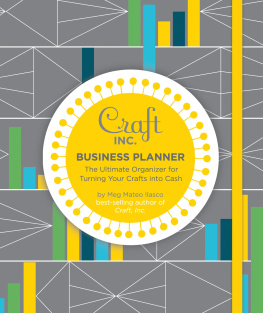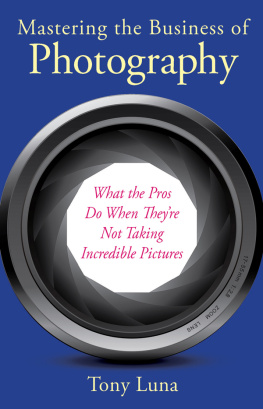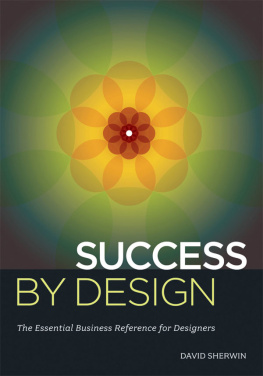
To our editors, Jodi Warshaw and Kate Woodrow, for championing this project, and for your advice throughout. To our agent, Lilly Ghahremani, for believing in our joint project and encouraging us to make it a reality. Special thanks to our assistants Virginia Dolen, Kimberly Kulka, and Andrea Rell for their dedicated research, proofreading, and taking care of everything around the studio so we could focus on writing. Thank you to Shane Abad at Disney and Andrew Beall at Pixar for insight into the film and animation industries. Our deepest gratitude is extended to Andrew Bannecker, Chris Riehl, Lauren Shields, Julia Rothman, Jenny Volvovski, Matt Lamothe, Thayer Allyson Gowdy, Matt Armendariz, Aviva Michaelov, Amy Ruppel, Mark Fox, Nina Chakrabarti, Lilla Rogers, Sarah Laird, Kenna Zimmer (on behalf of Sarah Laird), Ward Jenkins, Andrew Almeter, Josh Owen, Rebecca Thuss, Patrick Farrell, and Amanda and Dana Woodward. Thank you for taking the time to share your inspirational stories with us and giving us an inside look into your world and work.
Joy: To my husband, Bob, for being my best friend and unofficial (and unbashful) press rep and for always reminding me that everything works out in the end. To my brother, Jay, for being an awesome brother, period. To my brother-in-law, Vince, for your honest and valuable advice when I was just starting my freelance career. To my parents-in-law, Jackie and Sam, who may not know exactly what I do for a living but are always proud of me regardless. To my parents, Sunanta and Chumlong, for passing on your entrepreneurial spirit to me. Youve encouraged me to be my own boss ever since I can remember, and taking your advice was one of the best things Ive ever done. Finally, to my coauthor, Meg, youre the best partner in crime I could have asked for in writing in this book. Thanks for your never-ending humor and sarcasm, which always made our looming deadlines and crazy work days much more bearable.
Meg: To my husband, Marvin, who will probably find irony in , thank you for your love and support especially at times when my career overwhelms our personal life. To my kids, Lauryn and Miles, for cracking me up all the time and being a constant source of inspiration. To my brother, Alden, who had nothing to do with this book and whom I see rarely, but who would get a great thrill out of seeing his name in print. To my parents, Alfonso and Dely, who still dont know how to explain what I do for a living to their friends but are proud of me anyway. Thanks especially for babysitting the kids so I could get work done. To Joy, for being the Shirley to my Laverne. Thank you for giving me a swift kick in the butt when deadlines were approaching and an even swifter kick when I missed them. I couldnt have asked for a better coauthor for this book.
Do you ever wonder where your talents would take you if you put just as much effort (if not more) into working for yourself as you do working for someone else? If testing your creative potential has crossed your mind, its likely that freelancing could be that change youve been searching for. Freelancing offers you the opportunity to shape your career however you like. You can choose your clients, how much you want to work, what type of work to do, and how much to charge. Freelancing means youll no longer be clocking in hours for the Man; youll be turning your art into a full-time career and working for the best boss of all, You. In this chapter youll find out the qualities you need to succeed and determine whether the creative freelancing lifestyle is for you.
We define creative freelancer as someone who is a self-employed subcontractor offering her creative services to buyers. Typically a solitary practice, creative freelancing can be a group effort as well: whether a group of colleagues or a husband-and-wife team, freelancers can band together as a collective or form a partnership. However you do it, creative freelancing requires you to step up to the dual challenge of producing effective visual communications and managing a business. Remember, just because you are embarking on an artistic career without suits and ties, or even walls, that doesnt mean you should use your newly found freedom to operate your venture on the fly. To succeed, you have to manage your freelance business with the same level of seriousness as that of a corporate CEO. You simply cant rely on your talents alone. You need to know as much about managing a business as you do about your art. Luckily, youll find everything you need to get started here.
How do you know if youre freelance material? Its a vocation thats not for everyone. You need to be self-motivated, self-reliant, organized, confident, and an effective communicator. You may not possess all these characteristics right now, but with practice and a little discipline you can certainly develop them and be on your way to freelance success.
01 Strong business sense
Creative freelancing is not just about producing good work. Its essential to develop a strong business acumen as well. Theres enough ego and talent coursing through the creative world for even the most gifted artist to get lost in the crowd. The ones who flex their business muscle become the most identifiable and successful. Even though youll have more freedom than the typical nine-to-fiver, freelancing carries all the responsibilities of an independent business, including marketing, accounting, and office management. When youre running a business, youll find yourself having to make many solo decisions at any given point, so youll have to be a confident decision maker. You will also need self-motivation and resourcefulness to maintain your own schedule and provide structure to your workdayqualities that will come in handy when youre chasing down payments from clients!
02 A love of your art
Maybe your career has been moving along briskly at a motion-graphics firm, but the road ahead holds little appeal and autonomy is the only move that makes sense. Maybe you took illustration gigs during college, and with graduation around the corner youre ready to make a full-time go of it. Or maybe you were laid off, and this misfortune has presented an opportunity to make an exciting change. However you came to the decision to freelance, one thing is certain: you have to be passionate about what you do. Ask yourself these questions: Would freelancing excite you enough to get you out of bed in the morning? Would you mind sometimes burning the midnight oil to finish a project? Could you be happy turning your creative outlet into your main source of income? If youre drawn to freelancing mainly because of the lifestyle, the lure of authorship, or the potential for fame, youll likely become frustrated and burn out quickly when success doesnt happen overnight. A successful freelancer is passionate about his art and seeks inspiration to fuel iteven in his off-duty hourssimply for the sake of generating work that he loves.
03 Curiosity
Because youre a visual auteur and an idea person, your curiosity has probably gotten you to where you are right now. Curiosity keeps your mind primed as a creative tool, keeps you open to new ways of working and looking at things. Truth be told, though, the more you become an expert in your field, the less time youll have to step outside it and engage with the rest of the world. This disconnect can affect how you deal with people or approach problems. Thats why you need to continue to make an effort to stay curious and connected: read newspapers and books, watch documentaries and movies, and attend cultural events, to name a few. Whether youre a film director or graphic designer, at some point youll probably be assigned a project dealing with subject matter youre not familiar with. If youre an illustrator hoping to land your artwork in the
Next page

